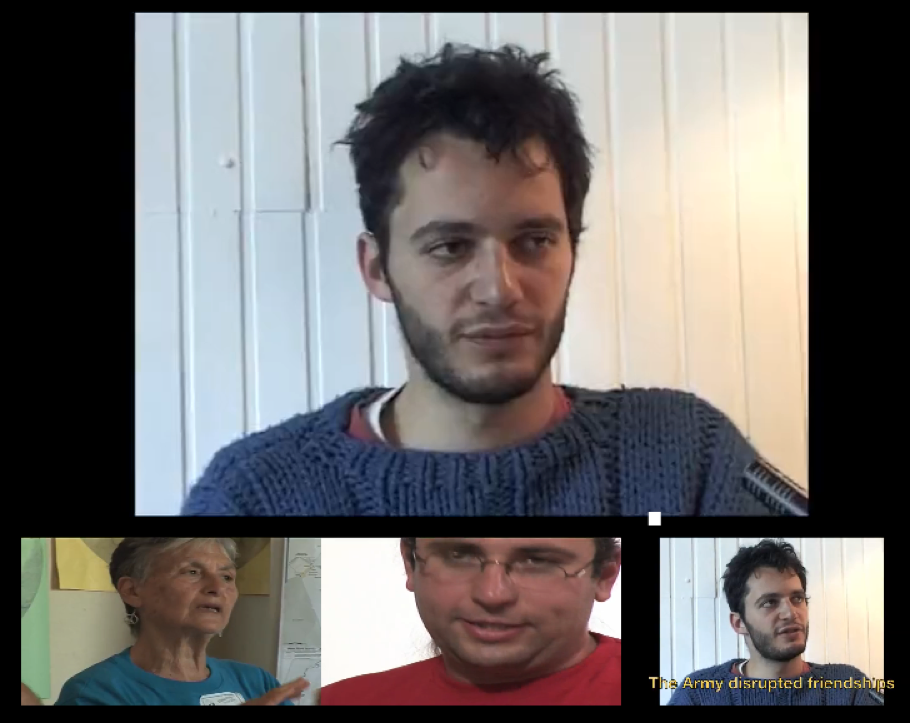The Only Democracy? » Featured » Six Common Misconceptions About Gaza That Are So 2011
Six Common Misconceptions About Gaza That Are So 2011

Reposted with permission from www.gazagateway.org
In sixth place: “The civilian closure has been lifted and only security restrictions remain”.
Gaza is not as isolated from the rest of the world as it was a few years ago, but it is still cut off from the West Bank and it’s hard to find convincing security reasons why. For example, Israel prohibits students from traveling from Gaza to the West Bank – individual security checks are not even an option because the ban is sweeping. Israel does not allow goods from Gaza to be sold in the West Bank or Israel, while at the same time allowing exports from Gaza to Europe to be transferred through its own airports and seaports. It also imposes restrictions on the import of building materials into the Gaza Strip. The impact is felt mainly by international organizations rather than the local government, which gets all the cement, gravel, and steel it needs from the tunnels. Ongoing restrictions make it difficult for Gaza’s economy to recover, but they also split families apart and impede Gaza residents’ access to higher education and the opportunity to acquire training in a number of highly needed fields.
In fifth place: “Israel gives Gaza money, electricity and water”.
True, Israel does give Gaza residents electricity and water. That is, if by “give” you mean “sells”. Israel also does not “give” money to Gaza’s residents – it does transfer tax monies it collects on their behalf, although sometimes with great delay.
In fourth place: “The Palmer Report concluded that the closure was legal”.
The Palmer Commission decided not to examine the legality of the overall closure of the Gaza Strip and determined only that the naval blockade imposed on Gaza was legal. In its report, the commission included a recommendation for Israel to continue easing restrictions on movement “with a view to lifting its closure and to alleviate the unsustainable humanitarian and economic situation of the civilian population”.
In third place: “Gaza has a border with Egypt, so Egypt should take care of the Strip”.
Six months ago, we posted the top ten reasons why the opening of Rafah Crossing just doesn’t cut it. The list is still valid, but here’s the gist of it: Even if Egypt fully opens Rafah to movement of people and goods, this would still not provide a solution for the problem of movement restrictions between Gaza and the West Bank. The desire to push Gaza onto Egypt and therefore make it possible to cut the Strip off from the West Bank is a common one, but its implementation would entangle Israel legally and politically.
In second place: “Israel disengaged from Gaza and all it got was Qassam rockets”.
Firing Qassam rockets on civilians is an unjustifiable war crime. This much is clear. We should keep in mind that the rockets didn’t start after the disengagement from Gaza and that four and a half years of closure have done nothing to reduce the threat of rockets being fired from Gaza into Israel – but don’t take our word for it. As for disengagement, Israel did remove its permanent military installations and civilian settlements from the Gaza Strip, but did this really end Israeli control over Gaza? Try asking a Palestinian from Gaza if she feels that Israel has really “disengaged” from her life. She wouldn’t think twice before responding in the negative. Israel controls her ability to study in the West Bank, export goods, fish, farm her lands and visit relatives. True, it’s hard to imagine control of a territory without permanent military presence on the ground, but this is exactly Gaza’s unique situation today.
And in first place: “Gaza’s residents voted for Hamas so they had it coming to them”.
Hamas’ victory in parliamentary elections in 2006, shortly after the “disengagement” was met with surprise. Withdrawal from Gaza didn’t bolster those in support of the peace process as many in Israel had expected. Today, more than five years after the elections were held, they are still used as an excuse for the closure.
First of all, it is important to stress that international law prohibits collective punishment of a civilian population and for good reason. Past experience has taught that civilians, irrespective of their political convictions, must remain “off limits”. This principle must be upheld in Gaza, in Israel and in all other places in the world facing conflict.
While we’re on the topic of the elections, and to be accurate, the elections Hamas won were not held just in the Gaza Strip but also in the West Bank and east Jerusalem. It was more than a year after the elections, in June 2007, that Hamas took control of the Gaza Strip.
No elections have been held in Gaza since 2006 and the debate between the various political movements in the Strip has been ongoing. One way of following this debate is through polls, such as those published by the Palestinian Center for Policy and Survey Research. For example, a poll from December 2011 shows that if elections for the Palestinian Legislative Council were to be held now, Hamas would get 35% of the vote and Fatah 43%. It’s worth recalling also that over half of Gaza’s population is below voting age. How can children be blamed for the outcome of elections in which they didn’t take part?
Filed under: Featured · Tags: 2011, facts, Gaza, Human Rights, Israel, misconceptions, reality








 “You have a choice! Israeli Anti-Militarists Speak”
“You have a choice! Israeli Anti-Militarists Speak”